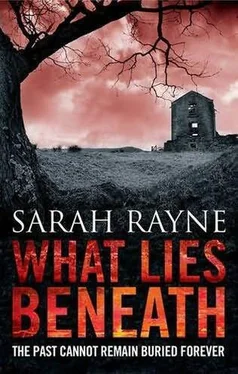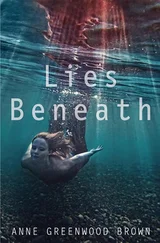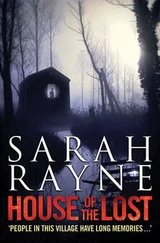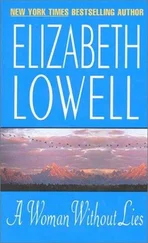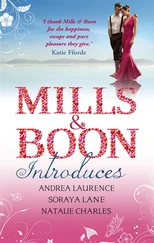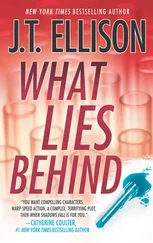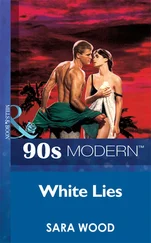‘It’s not so bad,’ said Crispian, watching me, and I looked at him and felt the familiar surge of hatred towards him. Because it was bad, it was very bad indeed. ‘You’ll grow accustomed,’ he said. ‘And there’ll be small tricks – little illusions you can use. A scarf, a deep-brimmed hat.’
‘Even easier, grow a beard,’ said Gil.
The beard turned out to be not possible – the flesh around my mouth had been so badly damaged the hair didn’t grow. I didn’t come to terms with how I looked then, and I never have. Perhaps I haven’t tried hard enough to accept the results of what was done to me.
I see I haven’t mentioned the darkness for the last few pages of this journal. It didn’t trouble me in the weeks following the punishment, but it was still there. I knew when I had completely healed it would flex its claws and rip into my mind. And on the day I saw my altered reflection for the first time, it seemed to me that I had somehow been turned inside out: that the inner darkness I had struggled against had been scraped away from inside my skin and smeared over my face for the world to see.
Crispian found a child’s slate and chalk, so I could write down anything I wanted to say. Never anything about being mistaken for a spy – I never referred to that. It would have been too easy to spin an elaborate tale and make some vital, damning mistake along the way. So I never once referred to it. No explanations or apologies.
It was soon apparent that no one believed the spy accusation. Or did Raif? Yes, I think he was suspicious. But Crispian and Gil and the other English people in that beleaguered city certainly thought I had been pursuing one of my quests for knowledge – music or some obscure area of Eastern art – and that I had given the wrong impression to the wrong people. A tragedy, they all said. Absurd to imagine someone so quiet, so scholarly – never a trouble to anyone – could be involved in spying. Appalling that an innocent man had endured such extreme brutality. They said it several times to one another, and also to Crispian, and then they felt they had assuaged their own consciences and went off to deal with getting through a siege in the depths of winter.
I should point out to anyone who hasn’t journeyed to the Turkish-Greek borders that winter there is not a pleasant experience. Winter in England can be rather cosy – roaring fires and mulled wine, spiders’ webs frozen into exquisite lace patterns on frosty mornings, and hollied Christmases with laden dinner tables. That’s if you have money, of course. If you’re poor, you shiver in doorways and beg in the streets, and hate the pampered rich with their fur-lined gloves and warm houses.
There was nothing cosy about that winter in Edirne, with the war raging and food supplies dwindling by the hour. Inside the fort huge fires were built in the old stone hearths and even in the inner courtyard, but they didn’t do much to combat the unforgiving iron coldness. Christmas was celebrated in a rather bleak fashion among the European community. I didn’t go to the festivities; I wrote on the slate that I was in too much pain that day. Crispian and Gil went and said later it had been a brave attempt at merry-making but not very successful. A few people had tried to sing carols but nobody had joined in with any real enthusiasm. There had been tiny measures of a fiery drink that Crispian said tasted of aniseed and would probably make him sick, but that Gil said was ouzo, and perfectly palatable. As to what the food had been, they had no idea.
I wrote, ‘Meat?’
‘Well, there was definitely some sort of meat,’ said Gil. ‘But whether it was horse or donkey, or whether they’d caught a Bulgar and boiled him, I wouldn’t know.’
‘Whatever it was you had two helpings,’ said Crispian.
‘And I was glad to get it,’ said Gil. ‘By the end of the Twelve Days we might be eating rat. Raif says some of the soldiers are setting up a shooting alley outside the cellars. Don’t shudder, Crispian. Rat is probably regarded as a great delicacy in some parts of the world. Jamie probably knows which ones,’ said Gil, glancing at me.
I shook my head.
‘Well, whatever it is, we might have to eat the rats before they eat us,’ said Gil. ‘Because I don’t think the food’s going to last out much longer.’
‘The Pasha will surrender soon,’ said Crispian confidently. ‘He’ll have to.’ He was as arrogant as ever. I suppose he couldn’t imagine he would be expected to endure this siege for long.
‘Lay you five pounds the old boy doesn’t surrender until the fifty days are up,’ said Gil. ‘Those were his orders and he’ll follow them to the letter.’
‘Done,’ said Crispian promptly.
I nearly took Gil’s bet, but later I was glad I hadn’t because Gil was right. The Pasha followed orders almost to the hour, and did not surrender the fortress and Edirne until the end of March. But it was a grim three months. By the end of January people were gaunt and hollow-eyed, and – let’s not be squeamish – rather smelly. What water there was – mostly taken from wells – had to be preserved for drinking. Sanitation was primitive in the extreme, which was unfortunate in light of the onion broth that still appeared at almost every meal. It can have very dramatic effects on the human gut, onion broth. The entire fort – probably the entire town – stank to high heaven by the time February was under way.
Living inside a fortress that’s being besieged is an extraordinary experience. I’ve tried to think of a parallel, but I don’t think there is one. Not even prison compares to it. The sense of isolation is absolute. There are no newspapers or letters, no communication with the outside world at all. The only thing that came to us from beyond the city’s confines was the sound of the guns and cannons constantly bombarding the city. People died and were wounded; families were torn apart, there was wailing of grief and anger on all sides, and dozens of small fires broke out from the shelling, and caused minor damage.
By the end of February Gil and the soldiers really were shooting the rats, because people were ready to eat anything. I don’t know if I actually ate any rat, but I wouldn’t be surprised. There comes a point when you’re so agonizingly hungry – when your stomach is twisted by cramps all the time – that you don’t question what’s on the plate; you just wolf it down.
Gil said messages were smuggled in and out by the Pasha and his aides, but they were almost entirely in code so it was no good trying to intercept any of them. When Crispian asked how he knew this, Gil said, oh, he occasionally met up with some of the soldiers in one of the bars that somehow remained open.
‘And the rumours get wilder all the time,’ he said.
‘D’you know what I find so terrible,’ said Crispian, having taken a moment to digest the fact that Gil met up with soldiers in bars. ‘It’s the way this has become almost commonplace. We’re hardly hearing the incessant bombardment from the guns and we’re becoming impervious to the deaths – the fires, the destruction and suffering… If you look out of a window on almost any night, you see little groups of people carrying dead bodies. You don’t know if they’ve been killed by shells or if they’re dead from starvation, but either way they’re just tumbled into graves.’
‘We’ll all end up being tumbled into graves if those go on much longer,’ said Gil. ‘Because if a burst of cannon-fire doesn’t get us, we’ll die from starvation.’
‘But we’re no longer shocked by any of it,’ said Crispian. ‘Even those appalling burns from that stuff that’s being used—’
‘Sulphur mustard,’ said Gil.
‘They scream with the pain, those poor wretches who’ve suffered burns,’ said Crispian, half to himself. ‘I can hear them sometimes from my window.’
Читать дальше
